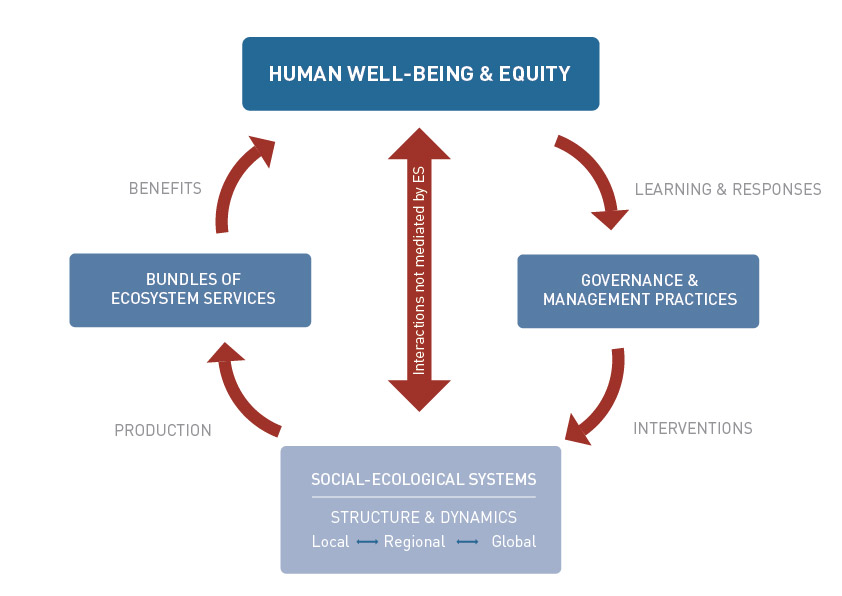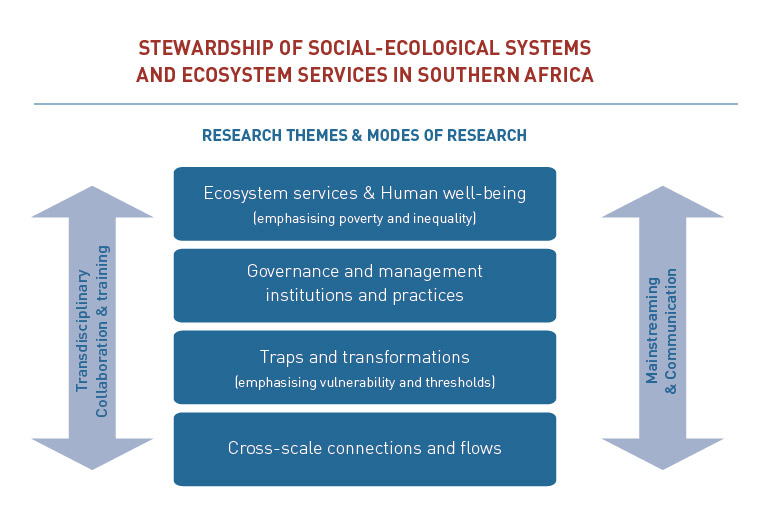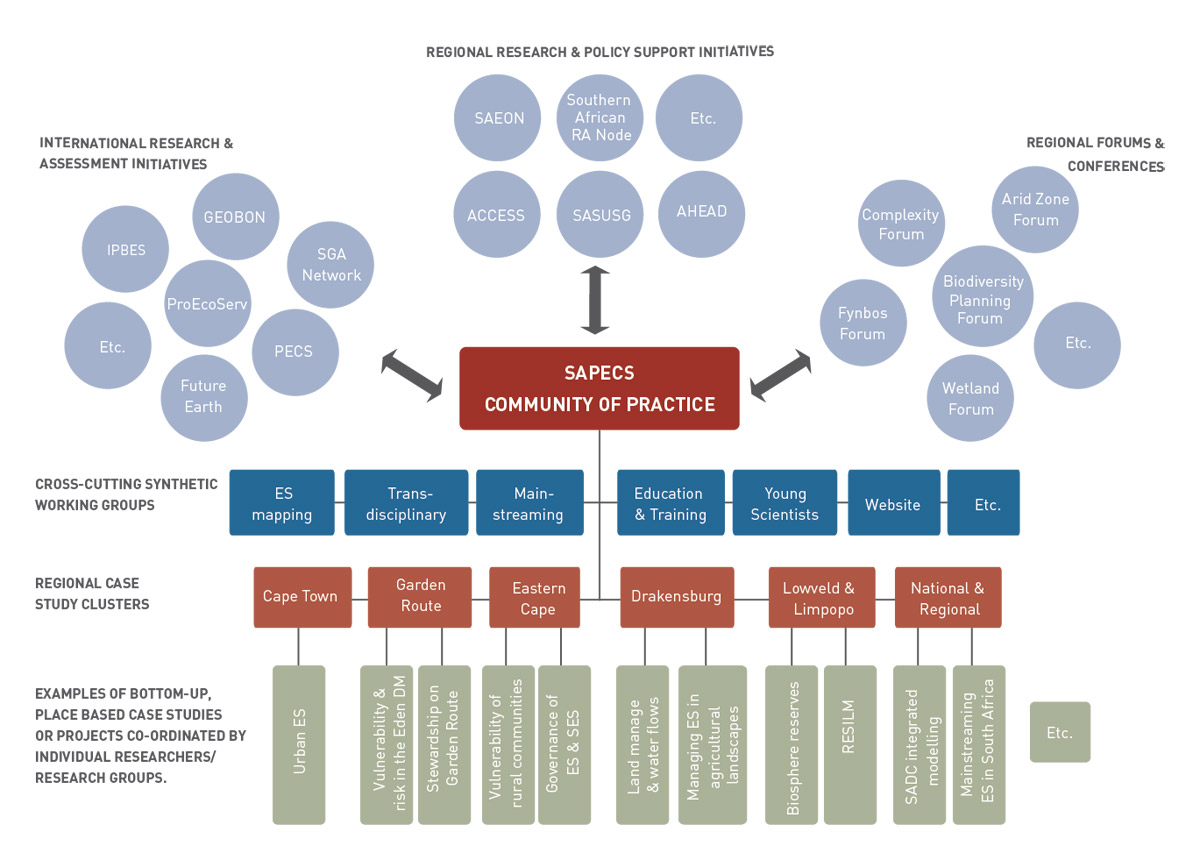ABOUT
SAPECS
The Southern African Program on Ecosystem Change and Society (SAPECS) is a transdisciplinary, international research program that aims to advance stewardship of social-ecological systems and ecosystem services in southern Africa. It is linked to the international Program on Ecosystem Change and Society (www.pecs-science.org), a 10-year research initiative within the ICSU global change programs.
SAPECS consists of a network of researchers, both from within the region and abroad, actively engaged in researching social-ecological systems in a range of case studies at various scales in the southern African region. This research is conducted within a shared conceptual framework and focuses on a common set of core themes.

OBJECTIVES
SAPECS aims to advance stewardship of social-ecological systems and ecosystem services in the Southern African region by:

CONCEPTUAL FRAMEWORK
SAPECS focuses on the dynamics of interconnected social-ecological systems, which we understand to be complex adaptive systems subject to nonlinear behavior. We are particularly interested in:

RESEARCH THEMES
The research questions being addressed by SAPECS focus on six key research themes, that represent important research gaps around which interesting collaborations and comparisons across individual research sites are possible. The first four themes focus on specific questions relating to the SAPECS conceptual framework, while the last two focus on the ways in which our research is done:
In adopting a transdisciplinary approach we mean that our research should draw on and integrate perspectives and approaches from a variety of disciplines, while avoiding superficial work at the boundaries of disciplines by actively seeking depth of understanding from all perspectives. Another aspect of this transdisciplinary approach will be actively working with stakeholders and practitioners in the design and conduct of research. We will also pay particular attention to communicating and mainstreaming of our findings and insights in the conduct of our research. We believe that it is important that decision makers, civil society and students not only be given access to information but are actively involved in co-discovering new possibilities and approaches to social-ecological stewardship.
ORGANIZATION OF SAPECS
Each of the researchers engaged in the SAPECS is working at the research frontier of developing tools and skills for transdisciplinary social-ecological research, and brings to the table one or more in-depth empirical case studies of social-ecological systems in the region. Currently these case studies cluster in a few regional nodes within South Africa, but the ambition is to engage with researchers in the wider region as SAPECS develops.
SAPECS itself is organized around a set of cross-cutting working groups that aim to compare and synthesize across these individual social-ecological case studies to develop new empirical insights or develop new conceptual advances. These working groups are proposed and led by different members within the SAPECS community and can change over time. SAPECS therefore functions as a community of practice and a platform for research collaborations, where researchers share skills and knowledge and develop new cross-cutting syntheses and collaborations.
Research within SAPECS links to a wide array of other initiatives within the region and internationally. SAPECS links to these initiatives through shared membership of individuals, presenting talks and organizing special sessions at related forums, and by organizing our own SAPECS colloquia to engage with the wider community of researchers, practitioners and policy-makers interested in social-ecological research.



